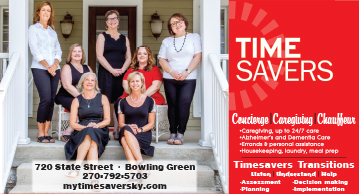Spring has sprung! And with it is another opportunity to put a plan in place to be ready for occurrences that are outside your control. Even though some crises are out of our control, what we do when they happen is a result of preparation, planning and organization. Sounds boring, but oh, what a relief it will be to have thought through the process before you are in panic mode.
Here are a few ideas for the adult children who might get the call that a parent has been hospitalized:
•Suggestions about what to bring to the hospital
*Your parent’s health insurance cards/Medicare cards
*A copy of your parent’s Living Will and Durable Power of Attorney/Health Care Surrogate
*A list of your parent’s current medications (this may also be able to be obtained from your parent’s primary care physician
*A signed HIPAA release
•Suggestions about what to bring for your parent
*Hearing aids
*Dentures
*Glasses
*Robe and skid-free slippers
*Any religious objects important to them
•Suggestions about what to bring for yourself
*A sweater
*Your laptop and hotspot
*A basic toiletry kit in case you spend the night (toothbrush, toothpaste, contact lens supplies, your own medications)
*Your phone and charger
*A water bottle
*A good book
*Bonus items you might keep in your car
•A work outfit in case you have to go straight from the hospital to work the next morning
•Workout clothes in case you have a chance for a walk or run
Here are your three primary functions when your loved one is in the hospital:
•Advocate – We cannot emphasize strongly enough how important it is that you ask questions, speak up, inspire action, and be your loved one’s voice. Hospitals are intimidating, particularly when someone has suffered a trauma or is seriously ill. They are disorienting and sometimes agitating to someone living with dementia.
You are your parents’ gatekeeper, protector, and information processor. None of these roles is easy. But each is vital to great care. Medical care is not just what happens with procedures and medications. It is what is conveyed, what is heard, and what is understood.
•Listen – Be an active listener. This means you don’t hear believing you already know the answer and you don’t listen only to respond. You listen to understand. You listen to be able to take information and options to your parent or other loved one. Repeat back to the speaker what you heard and what you understand that to mean. Take notes. Documenting conversations can remind you and make certain you recall correctly, as well as provide a history of what has been communicated.
Listen to understand the insurance and financial piece of the puzzle as well. Has your parent been admitted for treatment or are they merely under observation? The answer to this question determines what Medicare will cover.
•Support – Above all, you are a support for your parents. You are a comfort to them. Do they need their spiritual advisor/pastor/priest to visit? You can make that happen. Does your mom need her satin pillowcase? You can make that happen. Does your dad want to watch March Madness but the hospital room TV is on the blink? You can make sure all of that is taken care of.
And now a few suggestions to take care of you:
•Make sure your work is apprised of what is happening. Can you work remotely? Can you take vacation/personal days? Can you apply for FMLA?
Part of apprising your work is letting them know your productivity might be limited for a period of time. Better to put that out there up front than risk being less than productive and being called on the carpet. Many jobs understand the demands of stressful family situations. Some do not. Know your workplace, the right people with whom you should communicate, and know your rights.
•Make sure your family is aware of what’s happening. If your children are too young to understand, make sure your spouse or whomever is going to be caring for them knows how to communicate enough information to satisfy but not frighten the children.
If someone other than an approved person on the school list will be picking up, call the school, explain the situation and advise them what you need to happen.
Keep your spouse or other family members informed. There is little so scary as not knowing.
•Make sure your pets are fed, walked, and cared for. If boarding a pet becomes necessary, ask a friend to handle transporting.
•Know when your appointments are scheduled in case they need to be rescheduled or cancelled. Notify the appropriate contact if you won’t be able to make any volunteer shifts. Make sure someone knows of any food that might spoil or deliveries that might be made and need to be brought into the house.
•Wash your hands and drink plenty of fluids while staying with your parents in the hospital. Try to get as much rest as you can and eat as much healthy food as possible. You are no good to anyone else if you aren’t healthy yourself.
-by Elizabeth Downing
About the Author: Elizabeth Downing is Director of Outreach for Timesavers Concierge, Caregiving & Chauffeur. A 1982 graduate of WKU, Elizabeth found her passion in advocating and providing care for older adults and those with special needs. Timesavers seeks to raise awareness of issues relating to aging and caring for aging loved ones, and works to provide the highest quality care available. Elizabeth has completed a Certificate in Care Management from Boston University, is a Teepa Snow PAC Certified Independent Consultant, and facilitates a family caregiver support group each month.




